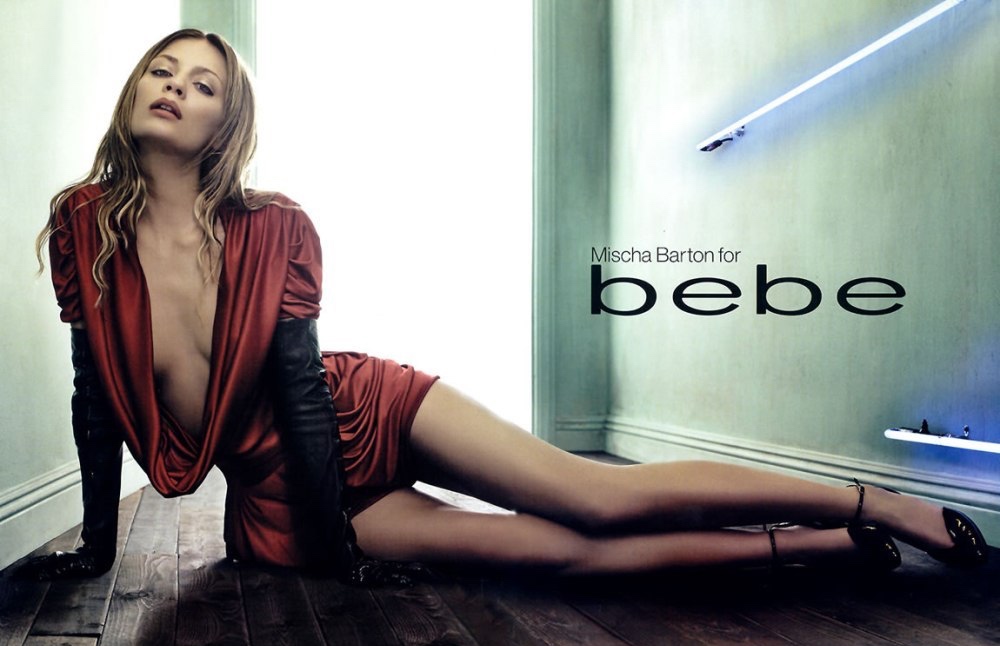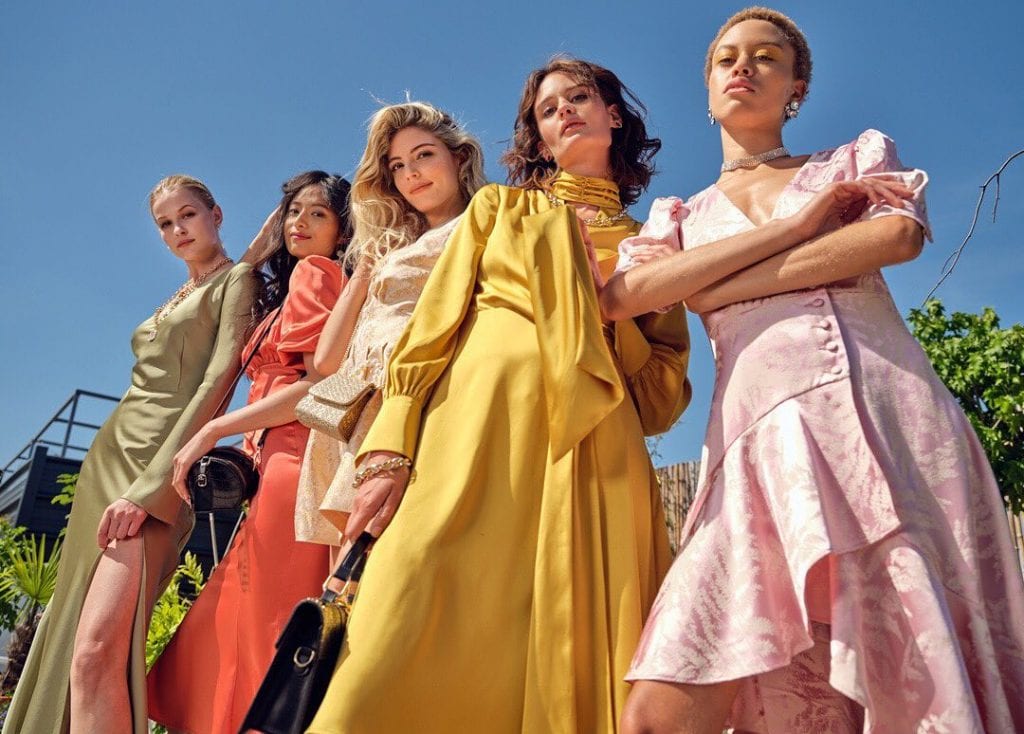Whether it is Cher Horowitz-inspired looks or reissued retro footwear silhouettes, the latter of which are helping brands like Reebok and Vans to post sizable growth, fashion has been carrying a flag for all things nostalgic in recent seasons. This effect is not limited to the runway or Instagram, though; at least one U.S. court is now home to a throwback of its own, a case filed by the once-very-popular mall brand Bebe, the former source of many a mid-2000’s bandage dress.
According to a lawsuit filed last week by BB Brand Holdings, the company that owns Bebe’s intellectual property rights, include the “Bebe” name that was emblazoned on the front of all of those t-shirts in rhinestones back in the day, the 42-year old, California-based womenswear brand is, in fact, still alive and kicking (albeit not in all of its shopping mall-staple, mini dress-selling glory), and it is policing its “world-famous” and “valuable trademark rights.”
In the newly-filed trademark and contract case, BB Brand claims that Centric Brands, Inc. – a former licensee tasked with making, marketing, and selling an array of wares under the Bebe name – has gone rogue after the parties “mutually agreed to end their business relationship” late last year. In accordance with their agreement to part ways, Centric was permitted to “sell any remaining inventory of products bearing the [Bebe trademarks]” but only by way of Bebe’s e-commerce site or “the international distributors identified in the [parties] e-commerce license” and only for a specified period of time.
The parties’ agreement required that Centric refrain from selling the Bebe goods to “mass market retailers, mid-tier retailers, dollar stores, and—most importantly here—jobbers or the like,” BB Brand’s complaint states. And more than that, the agreement specified that New York-based Centric Brands – which also holds licenses for Allsaints, BCBG, Herve Leger, Joe’s Joes and Under Armour, among others – “would not use the [Bebe trademarks] for any reason whatsoever (except for in accordance with the sell-off periods) and that any [unauthorized] use would constitute infringement.”
The parties’ formalized breakup appeared to be going well in BB Brand’s eyes until early this month when it learned that Centric “had either sold or offered for sale over 150,000 women’s apparel and accessories products bearing [Bebe] trademarks to [middlemen] in order to resell those products at bargain-basement prices to low-end retailers.” Not only does such behavior by Centric “flagrantly breach [the] termination agreements” entered into by the two companies, it gives rise to instances of trademark infringement and counterfeiting, BB Brand asserts.
According to BB Brand, the sale of goods bearing the Bebe trademark to lower-end retailers will “cause irreparable damage to the goodwill associated with the [Bebe trademarks], including the sophisticated lifestyle evoked by the [marks],” something that BB Brand informed Centric of in a letter on March 4. In the same letter, BB Brand “formally notified [Centric] about its concerns with their possible sale or offering for sale of products bearing the [Bebe trademarks] to jobbers or similar parties,” which Centric has since denied.
In furtherance of its claims of trademark infringement and counterfeiting, unfair competition, and breach of contract, which stem from Centric’s “transparent effort to milk every last dollar out of its failed effort as licensees,” BB Brand is seeking up to $2 million per counterfeit mark per type of goods sold, among other monetary damages.
The suit comes more than a year and a half after BB Brand revealed plans for a Bebe e-commerce revamp after closing up all of the brand’s 180 brick-and-mortar stores in 2017 following years of falling sales and a swiftly diminishing stock value. Since then, relatively little has been made in the mainstream media of the brand’s attempt to win back consumers, as led by Bluestar Alliance, a brand management firm with a sizable stake in Bebe. But, hey, if Marissa Cooper — err Misha Barton — can make an comeback, as she is set to do on MTV’s revamped The Hills this year, Bebe certainly can, too.
* The case is BB Brand Holdings LLC v. Centric Brands Inc. and Centric-Bebe LLC, 1:19-cv-02286 (SDNY).











